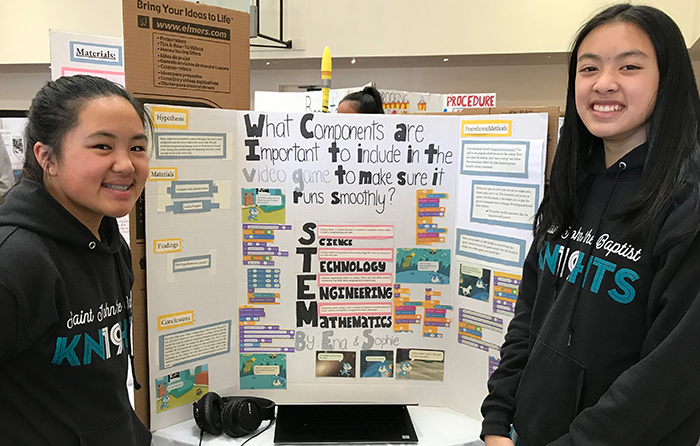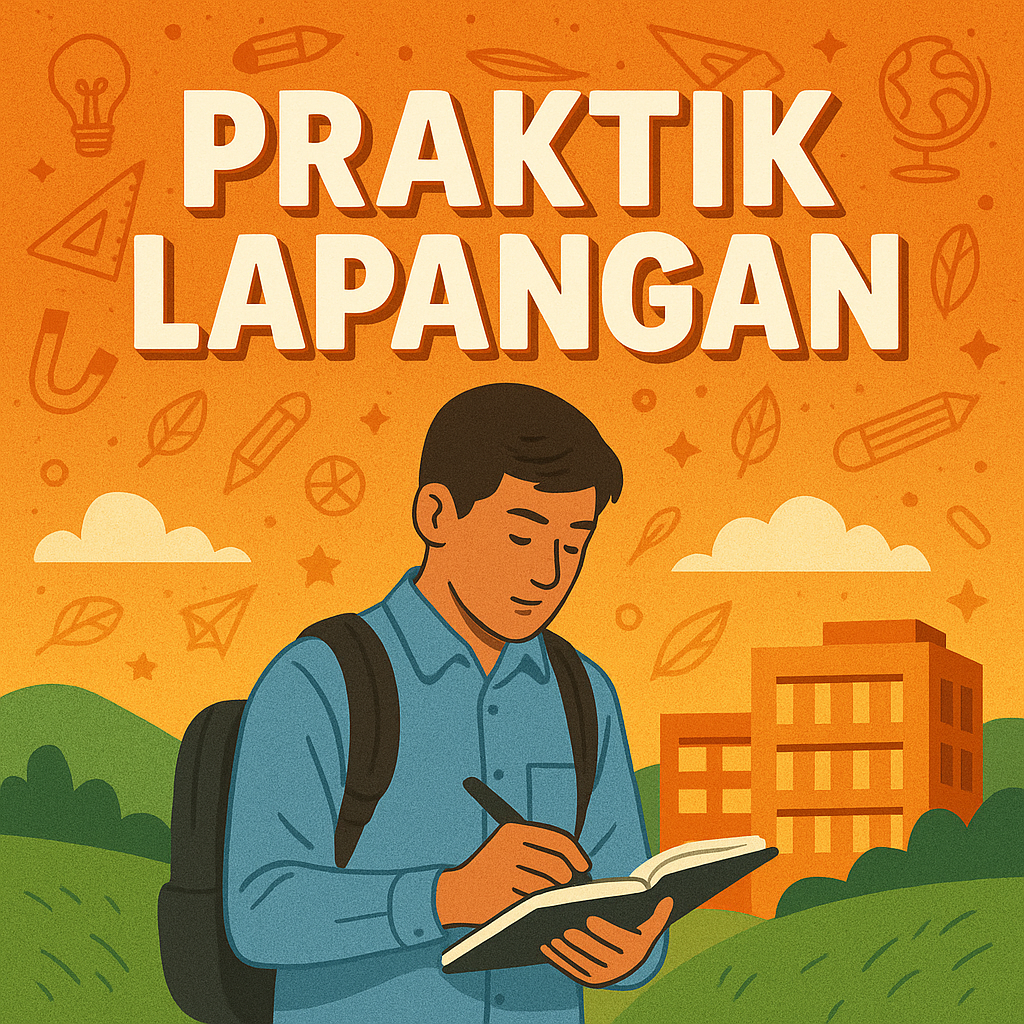
JAKARTA, inca.ac.id – In the realm of higher education, science projects serve as a dynamic tool for engaging students and enhancing their learning experiences. By integrating hands-on activities with theoretical knowledge, these projects not only deepen students’ understanding of scientific concepts but also cultivate essential skills such as critical thinking, collaboration, and creativity. This article delves into the significance of science projects in university education, outlines effective strategies for implementation, and presents various engaging project examples that can inspire students.
The Importance of Science Projects in University Learning

Enhancing Understanding of Scientific Concepts
One of the primary benefits of science projects is their ability to bridge the gap between theory and practice. Students often struggle to grasp complex scientific concepts when presented solely in a lecture format. Engaging in hands-on projects allows them to apply theoretical knowledge to real-world scenarios, facilitating a deeper understanding of the subject matter.
Active Learning
Active learning through science projects encourages students to explore, experiment, and engage with the material. This experiential approach not only solidifies their understanding but also makes learning more enjoyable and memorable.
Fostering Collaboration and Teamwork
Many science projects require students to work in groups, promoting collaboration and teamwork. This collaborative environment helps students develop interpersonal skills and learn from one another, preparing them for future professional settings where teamwork is essential.
Building a Community
Working on group projects fosters a sense of community among students. They share responsibilities, brainstorm ideas, and support each other throughout the project, creating lasting connections and enhancing their university experience.
Encouraging Problem-Solving Skills
Science projects challenge students to identify problems, formulate hypotheses, conduct experiments, and analyze results. This hands-on approach enhances their problem-solving skills, equipping them with the tools needed to tackle complex issues in their academic and professional lives.
Critical Thinking Development
Through the process of experimentation and analysis, students learn to think critically and evaluate evidence. This skill is invaluable, not only in scientific fields but in any career path they choose to pursue.
Promoting Creativity and Innovation
Engaging in science projects encourages students to think creatively and explore innovative solutions to scientific questions. This creativity is essential for driving scientific advancement and can lead to new discoveries and applications.
Inspiring Future Scientists
By fostering a creative mindset, science projects can inspire students to pursue careers in science, technology, engineering, and mathematics (STEM). When students see the potential for innovation in their work, they are more likely to engage deeply with their studies.
Increasing Engagement and Motivation
Hands-on science projects significantly boost student engagement and motivation. When students can see the practical applications of their studies, they become more invested in their learning and are likely to pursue further inquiry.
Real-World Applications
Projects that relate to real-world issues or current scientific advancements capture students’ interest and motivate them to explore the subject matter more thoroughly.
Effective Strategies for Implementing Science Projects
Align Projects with Learning Objectives
To maximize the impact of science projects, educators should ensure that they align with course learning objectives. This alignment guarantees that projects reinforce key concepts and skills that students are expected to master.
Action Steps
- Identify specific learning outcomes related to the course content.
- Design projects that allow students to explore these outcomes through hands-on activities.
Incorporate Interdisciplinary Approaches
Integrating multiple disciplines into science projects enhances learning by providing students with a broader perspective. Interdisciplinary projects encourage students to make connections between different fields and apply diverse approaches to problem-solving.
Action Steps
- Collaborate with faculty from other departments to develop interdisciplinary projects.
- Encourage students to explore how scientific concepts intersect with areas such as technology, engineering, and the arts.
Provide Resources and Support
To ensure the success of science projects, educators should provide students with the necessary resources and support. This includes access to materials, equipment, and guidance throughout the project process.
Action Steps
- Create a resource hub where students can find information about available materials and equipment.
- Offer workshops or tutorials on specific skills relevant to the projects, such as data analysis or laboratory techniques.
Foster a Culture of Inquiry
Encouraging a culture of inquiry within the classroom can enhance the effectiveness of science projects. This involves promoting curiosity, questioning, and exploration among students.
Action Steps
- Create an open environment where students feel comfortable asking questions and sharing ideas.
- Encourage students to pursue their interests and develop their project topics based on personal curiosity.
Assess and Reflect on Learning
Assessment is a critical component of science projects. Educators should develop clear criteria for evaluating student work and provide opportunities for reflection on the learning process.
Action Steps
- Use rubrics to assess project outcomes, considering factors such as creativity, scientific reasoning, and collaboration.
- Incorporate reflective activities, such as journals or presentations, to help students articulate their learning experiences.
Examples of Engaging Science Projects
Environmental Impact Studies
Students can conduct projects that assess the environmental impact of local practices or policies. This could involve analyzing air or water quality, studying local ecosystems, or evaluating waste management systems.
Project Steps
- Identify a local environmental issue.
- Collect data through surveys, experiments, or field studies.
- Analyze the findings and propose actionable solutions to mitigate the impact.
Renewable Energy Innovations
Students can explore renewable energy sources by designing and building their own solar panels, wind turbines, or bioenergy systems. This project encourages innovation and application of engineering principles.
Project Steps
- Research different renewable energy technologies.
- Design and construct a prototype of a renewable energy system.
- Test the system and evaluate its efficiency and feasibility.
Health and Nutrition Research
Students can investigate the effects of diet and exercise on health outcomes. This could involve conducting surveys, analyzing dietary habits, or studying the impact of physical activity on student well-being.
Project Steps
- Formulate a research question related to health and nutrition.
- Collect data through surveys or experiments.
- Analyze the data and present findings in a report or presentation.
Robotics and Automation
Students can engage in projects that involve designing and programming robots to perform specific tasks. This project combines principles of engineering, computer science, and mathematics.
Project Steps
- Define the problem the robot will solve.
- Design and build the robot using appropriate materials and technology.
- Program the robot to carry out its designated tasks and test its performance.
Citizen Science Initiatives
Students can participate in citizen science projects that contribute to real-world scientific research. This could involve collecting data on local wildlife, tracking weather patterns, or monitoring pollution levels.
Project Steps
- Choose a citizen science project or create a new one based on local needs.
- Collect data according to the project’s guidelines.
- Share findings with the larger scientific community and discuss implications.
Challenges in Implementing Science Projects
Evolving Legal and Ethical Considerations
As students engage in science projects, they must navigate various legal and ethical considerations. This includes understanding regulations related to research, particularly when involving human subjects or environmental impact.
Addressing Challenges
- Educators should provide training on ethical research practices and compliance with relevant laws.
- Encourage students to consider the ethical implications of their projects and how their work affects the community and environment.
Resource Limitations
Many educational institutions face budget constraints that can limit the availability of materials and equipment for science projects. This can hinder students’ ability to fully engage in hands-on learning experiences.
Addressing Challenges
- Seek partnerships with local businesses or organizations that can provide resources or funding.
- Encourage students to use low-cost or recycled materials for their projects, promoting creativity and resourcefulness.
Time Constraints
Balancing science projects with other academic responsibilities can be challenging for students. Time management becomes crucial to ensure that projects are completed effectively without overwhelming students.
Addressing Challenges
- Set clear timelines and milestones for project completion.
- Encourage students to develop time management plans that allocate sufficient time for research, experimentation, and analysis.
The Future of Science Projects in University Education
Embracing Technology and Innovation
The future of science projects in university education lies in embracing technology and innovation. As educational tools evolve, integrating technology into projects can enhance learning and engagement.
Opportunities for Innovation
- Utilize virtual labs and simulation software to allow students to conduct experiments remotely.
- Incorporate data analysis tools and programming languages to enhance research capabilities.
Expanding Global Collaboration
As universities increasingly emphasize global citizenship, science projects can facilitate international collaboration. Students can work on projects with peers from around the world, sharing knowledge and resources.
Opportunities for Collaboration
- Establish partnerships with institutions in different countries for joint research projects.
- Encourage participation in global scientific challenges or competitions that promote collaboration and innovation.
Fostering Lifelong Learning
Engaging in science projects instills a love for learning and inquiry that extends beyond the classroom. Students who participate in hands-on projects are more likely to pursue lifelong learning and scientific exploration.
Encouraging Lifelong Learning
- Create alumni networks that connect former students with current students for mentorship and collaboration.
- Promote continued involvement in scientific research and community initiatives after graduation.
Conclusion
Science projects are an invaluable component of university education, enhancing student engagement and learning outcomes. By providing hands-on experiences that foster critical thinking, collaboration, and creativity, these projects prepare students for future challenges in their academic and professional careers.
Implementing effective strategies, such as aligning projects with learning objectives, incorporating interdisciplinary approaches, and fostering a culture of inquiry, can maximize the impact of science projects. As educators continue to innovate and inspire, the potential for student engagement and learning through these projects remains limitless. Embracing this approach not only enriches the educational experience but also cultivates the next generation of scientists, innovators, and informed citizens.
By investing in science projects, universities can create vibrant learning environments that empower students to explore, discover, and contribute meaningfully to the world around them.
Improve Your Abilities: Explore Our content on Knowledge
Take a Look at Our Latest Article on Enrollment Trends!







